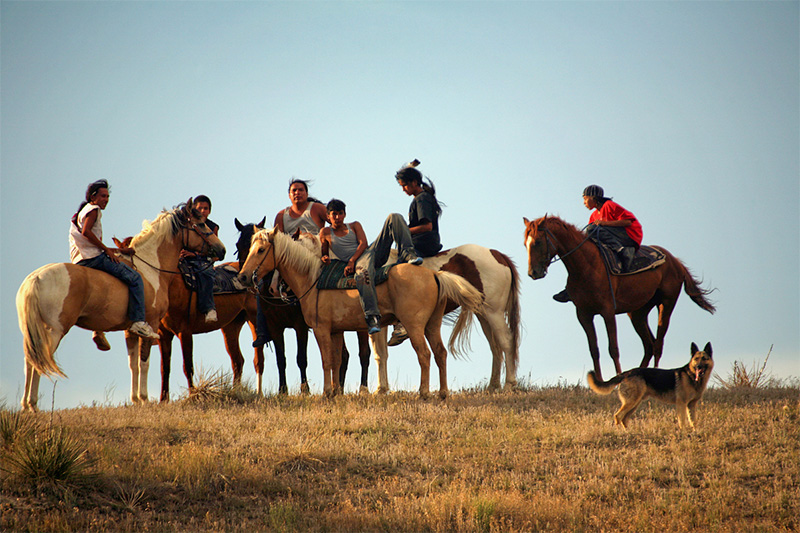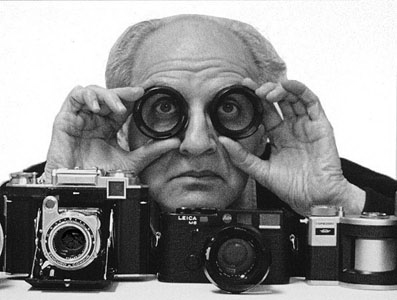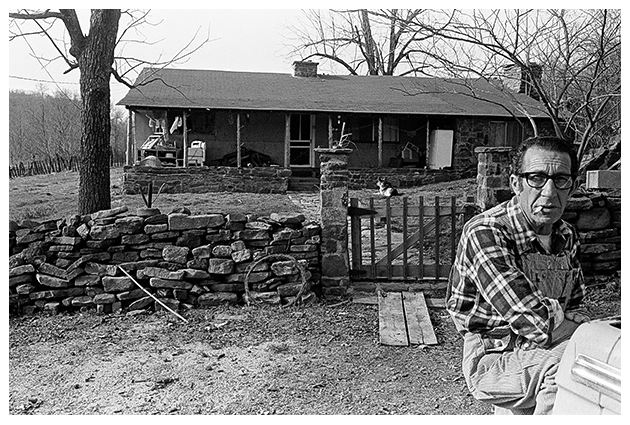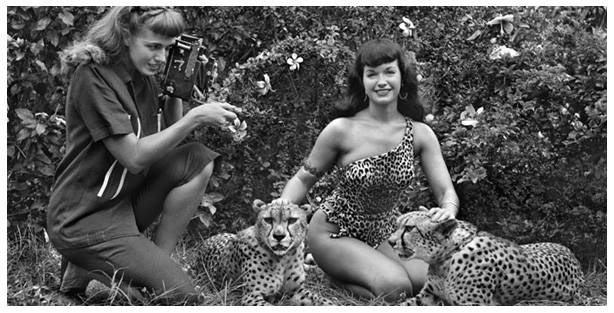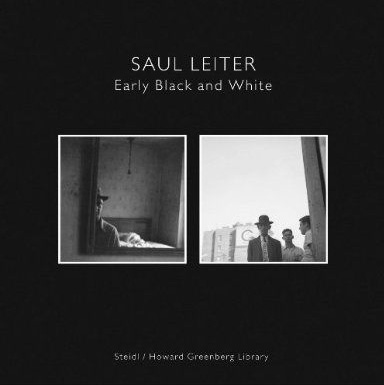Guest post by Kevin Purcell
Regarding the Vivian Maier lawsuit settlement, I think Mike went hyperbolic on this one in his post last Friday. The fact that the owners of the prints and negatives and the estate have come to an agreement is good news for everyone.
The law is quite simple and, no, this case is not a distortion of copyright law. It's straightforward probate law and copyright law. The difficult bit was the genealogy. I explained that (accurately, even though I am not a lawyer) in this previous comment.
The simple version is that Vivian Maier's prints and negatives were sold before she died to clear a storage debt (that's contract law). The prints and negatives were never part of the estate and are clearly owned by John Maloof (and others who sold them on). But buying prints and negatives doesn't mean the buyer owns the copyright to them. The copyrights stayed with Vivian (whilst alive) and then with her estate (once she had died), which is administered by Cook County, Illinois, where she died. Vivian died intestate (i.e., without a will) and it's the Cook County Probate Department's duty to find her closest heirs and to transfer the property (the copyright, in this case) to them. As detailed in the New York Times article "The Heir's Not Apparent," David Deal just pointed out to Cook County that there's another heir lurking in the family tree that John Maloof didn't have a copyright agreement with.
Neither Cook County nor David Deal are the bad guys here. They are the good guys: they are finding the rightful owners of the copyright and putting them in contact with the owners of the copyrighted objects. The rest is business negotiation over filing copyright registration (which needs copies of the images).
One statement in the article goes against previous reporting: "At the center of the case is an unusual situation: A woman who died virtually penniless and without any clear heirs now has an estate potentially worth millions of dollars." They seem to take the witty title of the New York Times article cited above too literally. She apparently does have clear heirs (and there may be two first cousins once removed). The problem was they weren't clear at the beginning due to faulty genealogy. That they're "laughing heirs"—i.e., they didn't know they were heirs—doesn't make them any less heirs to the estate.
John Maloof, we now know, did violate copyright in publishing her images without a license from all the heirs; but he made a deal with the one heir he found so he did attempt to clear the copyright before publication. David Deal pointed out that this wasn't the only heir (and that Maloof's genealogy had been mistaken). There was also a bit of cage rattling from Deal over "copyright infringement" to get Maloof's attention and to set the scene for negotiation. I suspect that all that this means is he pays royalties to use the images he used in his books and film under the deal which gives the estate access to the negatives and prints to allow copyright registration of all the images and films.
Everybody wins (the heirs; Maloof; and the photography establishment, for finding a new photographer) if the settlement is finalized, because we will see more of her photos being reproduced. It would be nice to see what the agreement is, but we have to wait for it to be unsealed after May 10.
Crazy copyright law? Not in this case
People who are placing the blame on the deficiencies in copyright law here aren't understanding the law. There are problems with current copyright law, but this case doesn't exhibit any of them.
The status of copyright on this work and who it resides with is unambiguous. The Estate of Vivian Maier holds the copyright on this work as it passed to it when the original copyright holder, Vivian Maier, died. She didn't publish during her lifetime so there is no chance that copyright expired earlier; only current copyright law applies.
That's the one thing that's clear about this case.
The fundamental problem is the tangible objects (the negatives, the prints and the movies) aren't owned by the estate. They were purchased by other people when Vivian Maier was alive so they aren't part of the estate created at her death.
The owners of these objects don't have to give them to the estate. They bought them when the storage facility sold them off (following the contract at the storage facility to sell items when the fees weren't paid). So the owners of the objects own them like you own your car or camera. But the owners of the objects can't make commercial use of them by making copies (i.e. prints, books, films) because they don't own the copyright. That right resides with the estate.
Cook County won't get to register copyright for the estate until an agreement is made with the people who hold the objects unless as an act of goodwill those people provide low-res copies of the images. But without the prospect of an agreement, the owners of the objects have no incentive to cooperate.
It was clear how to resolve this problem. All sides needed to negotiate a commercial contract between the estate and the owners of the objects. Then, both can make money by publishing the images and dividing the proceeds. This seems to have been done—we'll find out the details tomorrow, when the terms of the agreement are unsealed by the judge.
Copyright law isn't broken. It's working here as intended: copyrights go to the estate and will last for 70 years after Maier's death (as the current law stands).
Probate law isn't broken either. It's Cook County's job to go to bat for the estate until an heir is found or the estate ends up with the State (as do all unclaimed estates). That's what probate law does. If you don't like it, make a will, or your estate will end up in probate.
Contract law isn't broken either. That's how the objects were sold initially. If you have a storage unit you have the same sort of contract.
Moral of the story: make a will. And pay your storage fees to avoid this problem happening to you.
Kevin
©2016 by Kevin Purcell, all rights reserved
Original contents copyright 2016 by Michael C. Johnston and/or the bylined author. All Rights Reserved. Links in this post may be to our affiliates; sales through affiliate links may benefit this site.
(To see all the comments, click on the "Comments" link below.)
Featured Comments from:
Manuel: "Allow me to put my cold lawyer's eye to this issue.
"It is important, previous to entering any discussion on copyright law, to understand the nature of the author's right as established by international agreements such as the Bern Convention. Copyright—or, more precisely, the rights that emanate from creating a legally protected work—bears an important divide: there's a monetary content on one side, and on the other a moral content. So, even if the word 'copyright' is primarily used to refer to the former sense, copyright is actually two separate rights under the same umbrella. The monetary aspect includes the author's right to sell the work—in which case all future profits from publishing, exhibiting or any other form of commercial exploration of the work belong to the purchaser, unless legally or contractually stated otherwise. Even in this case, though, the author keeps what is known in Rule of Law systems as the moral right over the work. This means that Mr. Maloof, by purchasing Vivian Maier's negatives, may have become the legal holder of the monetary rights, but he holds no moral rights over Vivian Maier's photographs. The latter are held by the authors themselves or their heirs. (In Vivian Maier's case, the moral rights belong to her estate until her heirs claim the heritage.)
"So, one thing is to have possession of the physical consubstantiation of the work, another is to hold authorial rights over it. They may coincide under the same holder, but not when the work is traded in any way. Let me exemplify: If I sell a photograph, I pass the physical content of my work to the purchaser, but unless agreed otherwise I am still its author and as such the purchaser needs my permission to publish, exhibit, sell prints or whatever.
"That's what this litigation is about: Vivian Maier's estate is rightfully claiming moral rights over her body of work. As Mr. Purcell correctly stated, 'Neither Cook County nor David Deal are the bad guys here.' I agree.
"I hope this casts further light on this subject brilliantly developed by Kevin Purcell. Law—under any form and any system—is founded on general principles. The separation between monetary and moral rights is one that has been at the inception of modern copyright laws, therefore knowing this fact is essential to understand what this discussion is all about."
John Camp: "There is, of course, a difference between the administration of the law (the discovery of the heirs, the proper application of the current copyright law, the determination of who owns the physical property) and the content of the law. A lot of people think that the copyright law, as it is now, was designed by indebted politicians to protect Disney copyrights to Mickey Mouse and other cartoon characters, and not in any way to really protect authors of original material or to promote publication, as the copyright law supposedly is intended to do. How does delivering money to a large corporation for seventy years after the death of the creator really serve the public interest?"
Mike replies: The opposite situation is instructive. Ulysses S. Grant worked assiduously on his memoirs at the end of his life, despite being grievously ill with cancer and unable to walk, because he had been bilked out of his fortune by a 19th-century Bernie Madoff and he was concerned that his wife would fall into poverty after his death. After Herculean effort and great determination, he died five days after the book was completed.
It became a bestseller, and by all accounts was quite a good book to boot (I haven't read it). The Grant family made $450,000 on it—more than $10 million in today's dollars—and his widow was able to live out her life comfortably on the proceeds.
Crabby Umbo: "I don't understand why anyone thinks that the originator of intellectual property and their heirs shouldn't have the ability to earn an income off what they've created (and in fact, in 'perpetuity' as far as I'm concerned). Why is this 'insane' or 'ridiculous'?
"The only reason someone would be against this is if they are a 'stealer' of work and want the ability to profit from someones else's intellectual property solely because they bought the physical object. Moose [in the full Comments section —Ed.], I think, has it exactly wrong: when you buy any physical manifestation that constitutes intellectual property, you should never think you've bought anything other than the opportunity to look at it, listen to it, or read it. And what makes you think you should have more...?
"This is where the recording industry went wrong years ago by not making it crystal clear to people that they weren't buying anything but the ability to listen to music for their own enjoyment. The industry didn't worry about it because it was a self-destructive delivery vehicle of less quality than the original.
"I've also said repeatedly that I attended and graduated from an intellectual property rights and copyright course at the dawn of digital, and the class was virtually filled with people asking to what extent they could steal items off the internet to repackage or reuse to make money on, without getting caught or prosecuted; to the total exasperation of the attorney teaching the class. I found it interesting that the class wasn't filled with creatives trying to figure out how to safeguard their work, but 'suits' trying to figure out how to steal and repackage it! Keith above says that copyright law exists to encourage publishing, but I believe this to be incorrect. It exists to keep charlatans from stealing others work and profiting from it, and it exists to safeguard the originators of intellectual property. The written word (or a photograph) is much easier to steal than your car.
"Maloof is a hero for finding and preserving the work, and for searching, within his limited abilities, to find and make a deal with an heir. He's did all he could do or afford at the time. He's not in the wrong, it just needed to hit another level of research."
adamct: "Two comments: 1. I've been waiting for the day that lawyers get to shine on T.O.P. (however briefly)! Kudos to Kevin and Manuel. 2. My company has hired a 1st year law student as an intern for this summer. I sent her an e-mail today, in advance of her 1st year law school exams, in an attempt to reduce the related levels of absurd anxiety. With regard to Property (a subject that includes rules as incomprehensible and irrational as the 'life plus 70' rule in copyright—ask any lawyer about the Rule Against Perpetuities and they will run away screaming), I wrote: 'If Property doesn’t make any sense to you, it’s because it isn't a real subject. Property is just a perennial prank that law school professors like to pull on naïve young 1st years.'"
Mike replies: Maybe TOP should have a legal editor. As I did this time, I often get legal matters wrong, at least at first. At least I'm willing to stand corrected, as I was by Kevin this time....[sigh]
